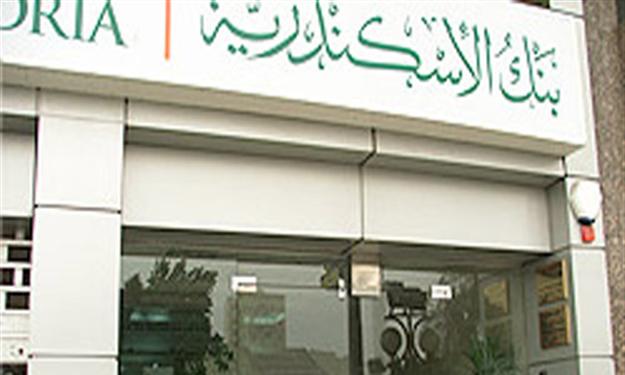
(AFP Photo)
The latest Middle East and North Africa (MENA) Consumer Confidence Index (CCI) Survey, conducted by Bayt.com, the Middle East’s number one job site, and YouGov, a research and consulting organisation, shows that respondents across the region anticipate a rise in the cost of living in their country in the next six months. Egypt is no different; however, respondents are mostly positive that their personal financial situation will improve within the same period.
19% of the region’s respondents said that their financial situation has improved compared to six months ago, with the 43% claiming that it has remained unchanged, and 29% claiming it has become worse. Half (52%) of the respondents state that their savings have decreased in comparison to last year.
Expectations for the future are high though, with half of the survey’s respondents (46%) anticipating their personal financial situation to improve in six months. Somewhat contrary to this is that 71% predict that the cost of living in their country of residence will increase in the months to come.
Meanwhile, in Egypt, 73% of respondents state that their personal financial situation is now either the same as, or worse than it was six months ago, with only 17% claiming it has improved. Only 14% claim that their savings have increased in the last year, compared to 54% whose savings have decreased. The majority (45%) expect their personal financial position to improve in the six months to come, though 65% also believe that the cost of living will increase within the same time.
The survey also showed that the majority of respondents across the region (36%) believe that the economy in their country of residence has receded in the last six months, especially so in Syria (84%), Jordan (66%), Lebanon (65%) and Tunisia (63%). The situation is considered to have improved most in Oman and Qatar (43% each), followed by the UAE (39%). These three countries also have the strongest predictions for a better economy in the future, while across the board, 42% of regional respondents anticipate things to improve.
Business conditions are, on the whole across the MENA region, considered to be ‘average’ by a majority 41% of respondents, while 32% claim that things are ‘good’ or ‘very good’. With 53% of respondents saying that conditions in Qatar are ‘good’ or ‘very good’, it would appear to be the best place for business at present as per the Bayt.com survey. Expectations are high across the region for conditions to get better in a year’s time.
Employment conditions are considered to be difficult, with 32% of regional respondents stating that ‘there are few jobs available across few industries’, and 26% stating that ‘there are few jobs available across various industries’. Employment opportunities seem to be the highest in the UAE and KSA, followed by Qatar and Oman. In general, respondents anticipate more jobs in the coming 6 months, with the exception of Syria, Jordan and Lebanon, who anticipate a decrease in employment opportunities.
In Egypt, only 15% of the respondents believe that the country’s economy has improved in the last 6 months, while 51% state that it has receded. Almost half (47%) anticipate better things to come in the next 6 months. Business conditions in Egypt are believed to be ‘good’ (18%) or ‘very good’ (4%), with 41% stating that they are ‘average’, while 64% of respondents anticipate them to improve in a year’s time.
In terms of employment opportunities, 26% of Egypt respondents state that ‘there are few jobs available across various industries’, and 41% believe that ‘there are few jobs available across few industries’. A third of all Egypt respondents (31%) expect there to be an increase in jobs in Egypt available in the next 6 months, while 28% expect the situation to remain the same.
When asked whether there have been any changes in the number of employees at their company in the last 6 months, the majority of regional respondents (33%) say that there have been no adjustments; 30% say that they now have more colleagues, and 29% say that they have fewer. Just more than a third (36%) expect their company to hire in the coming six months, while 35% expect there to be no changes.
The majority of respondents (43%) in the region are satisfied with the career growth opportunities that their company presents them – especially so in Oman (60%) and Qatar (52%). Satisfaction with salary and allowances is low across the region, with 57% of respondents being dissatisfied, while those most happy with their compensation live in Oman (48% satisfied), Qatar (44%) and Kuwait (43%). However, 44% of respondents are happy with their non-monetary benefits, particularly in Algeria (57%), Oman (52%) and KSA (52%). Levels of job security are also high, with 44% satisfied. Algeria (59%), Oman (56%) and Kuwait (55%) seem to offer the highest level of job security.
As for Egypt, fifth (18%) of the respondents stated that their companies have grown, employee-wise, in the last 6 months, while 32% say that there has been a decrease in the number of people working with them. The majority (39%) expect there to be no growth in the number of employees in the coming 6 months.
Egypt respondents are satisfied with their career growth opportunities (39%), though they are mostly unhappy with their current compensation, with 46% dissatisfied compared to 29% who are satisfied. They are also mostly unhappy with their non-monetary benefits, with 41% dissatisfied, and job security, with 40% dissatisfied.
“It’s clear to see which countries are currently perceived by residents to be more favourable to live and work in than others; countries within the GCC seem to be preferable for their current economic situations and the business conditions that comes with such. The Levant seems to be less popular at present, most likely influenced by regional political situations,” said Suhail Masri, VP of Sales, Bayt.com. “At Bayt.com, we specialise in empowering the region’s job seekers and employers by providing them with the latest vital statistics relating to recruitment.”
“Respondents in the GCC countries seem to be especially happy with their current situation, in terms of job and the country’s economic stability. However, with the majority of people anticipating an increase in living costs and having experienced a decrease in savings, it may be time to take an evaluative look at the stability of personal financial situations,” said Sundip Chahal, CEO, YouGov.
Data for the quarterly Bayt.com Consumer Confidence Index survey (September 2013) was collected online from July 28-August 15 2013, with 6,585 respondents aged over 18 years, covering the GCC, North Africa, Levant, Western Expatriate and Asian. Countries that participated are UAE, KSA, Kuwait, Oman, Qatar, Bahrain, Lebanon, Syria, Jordan, Egypt, Morocco, Algeria and Tunisia.




